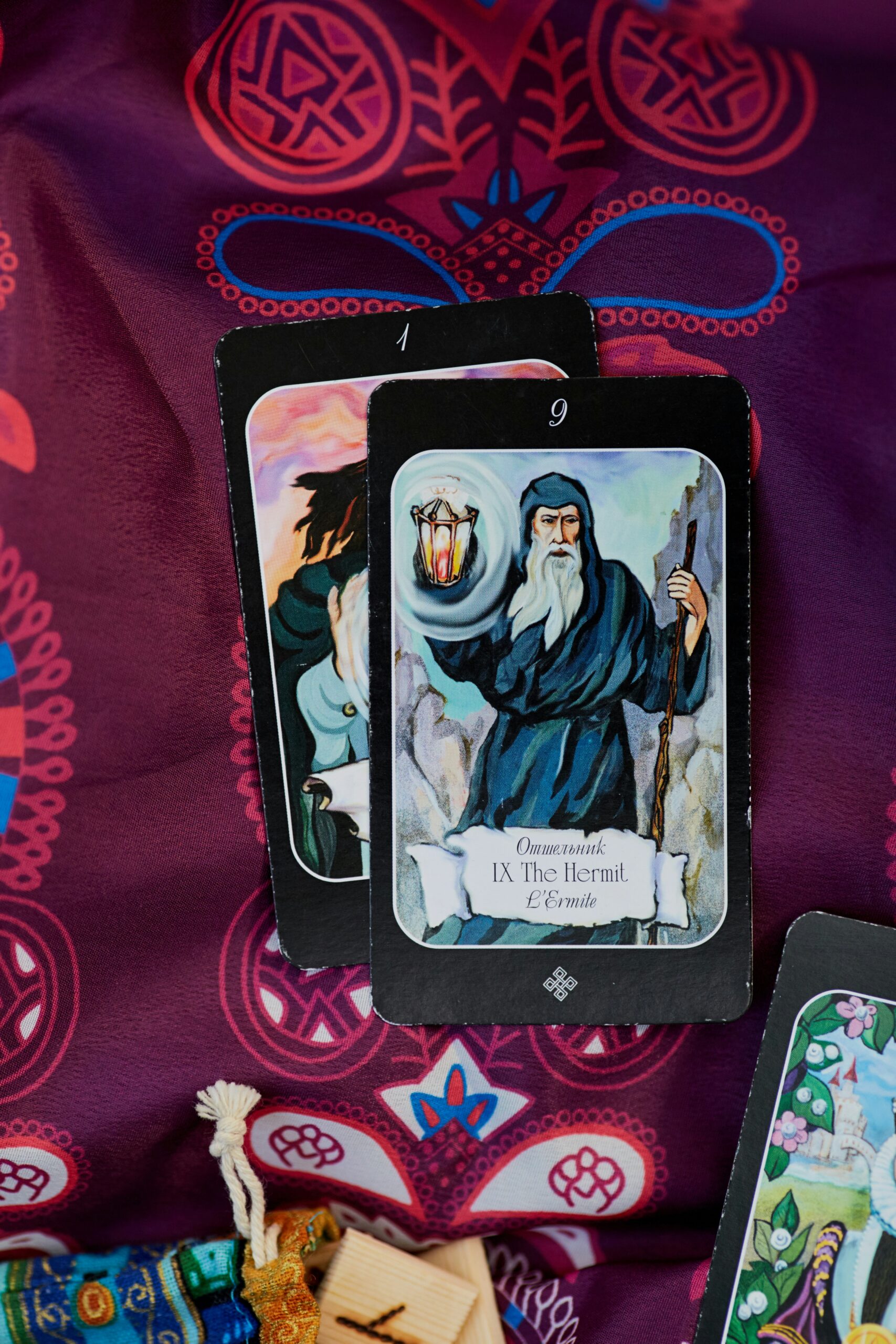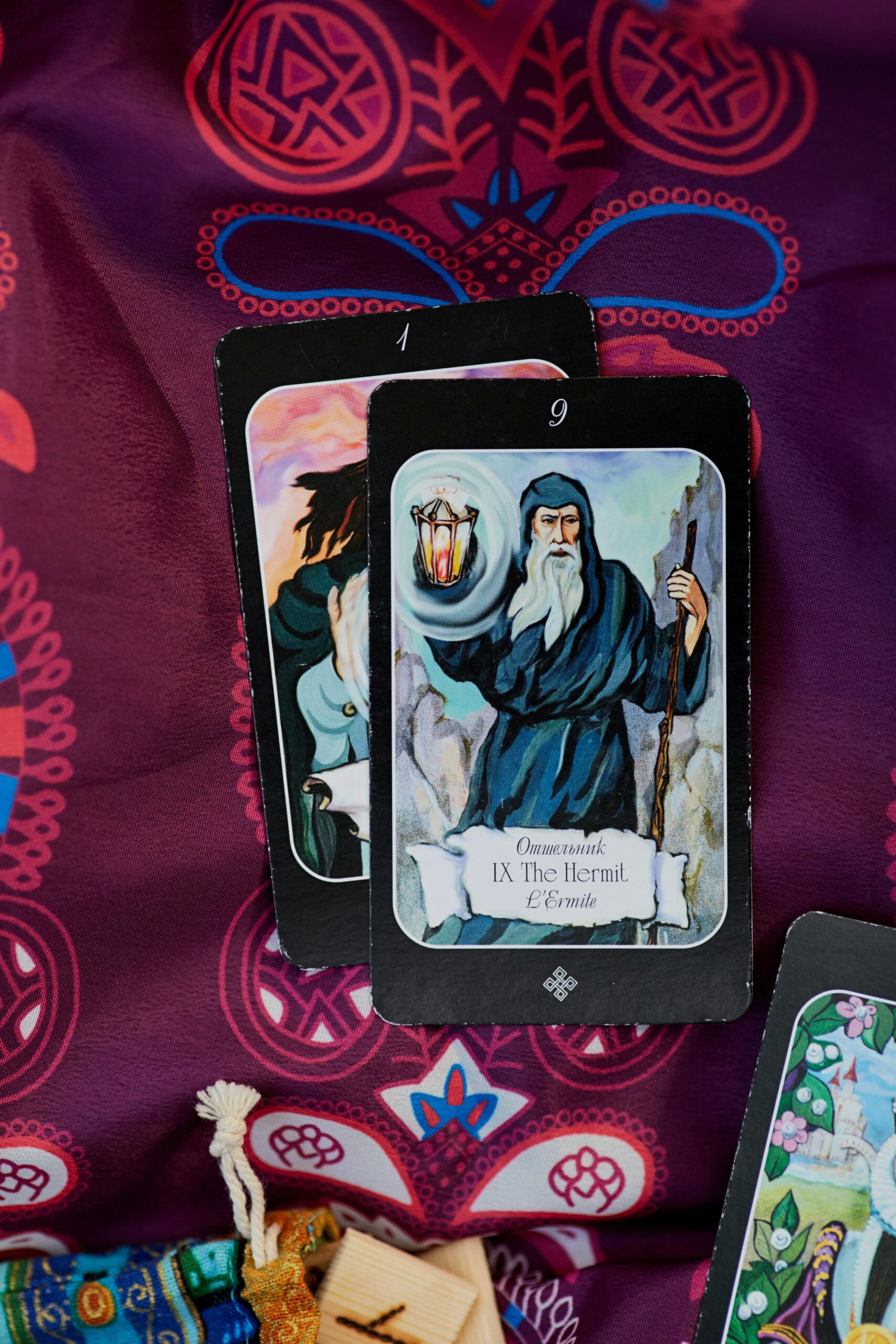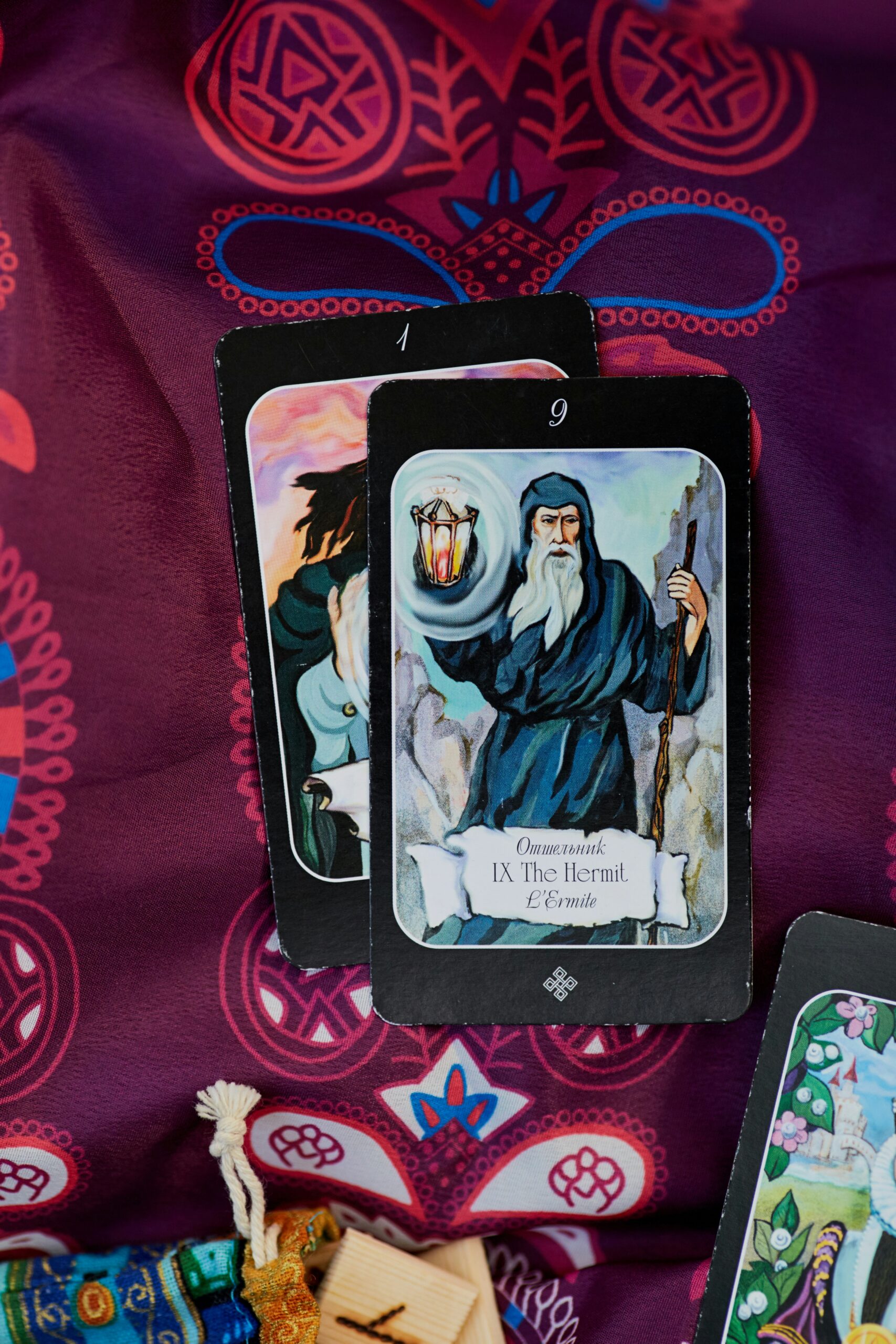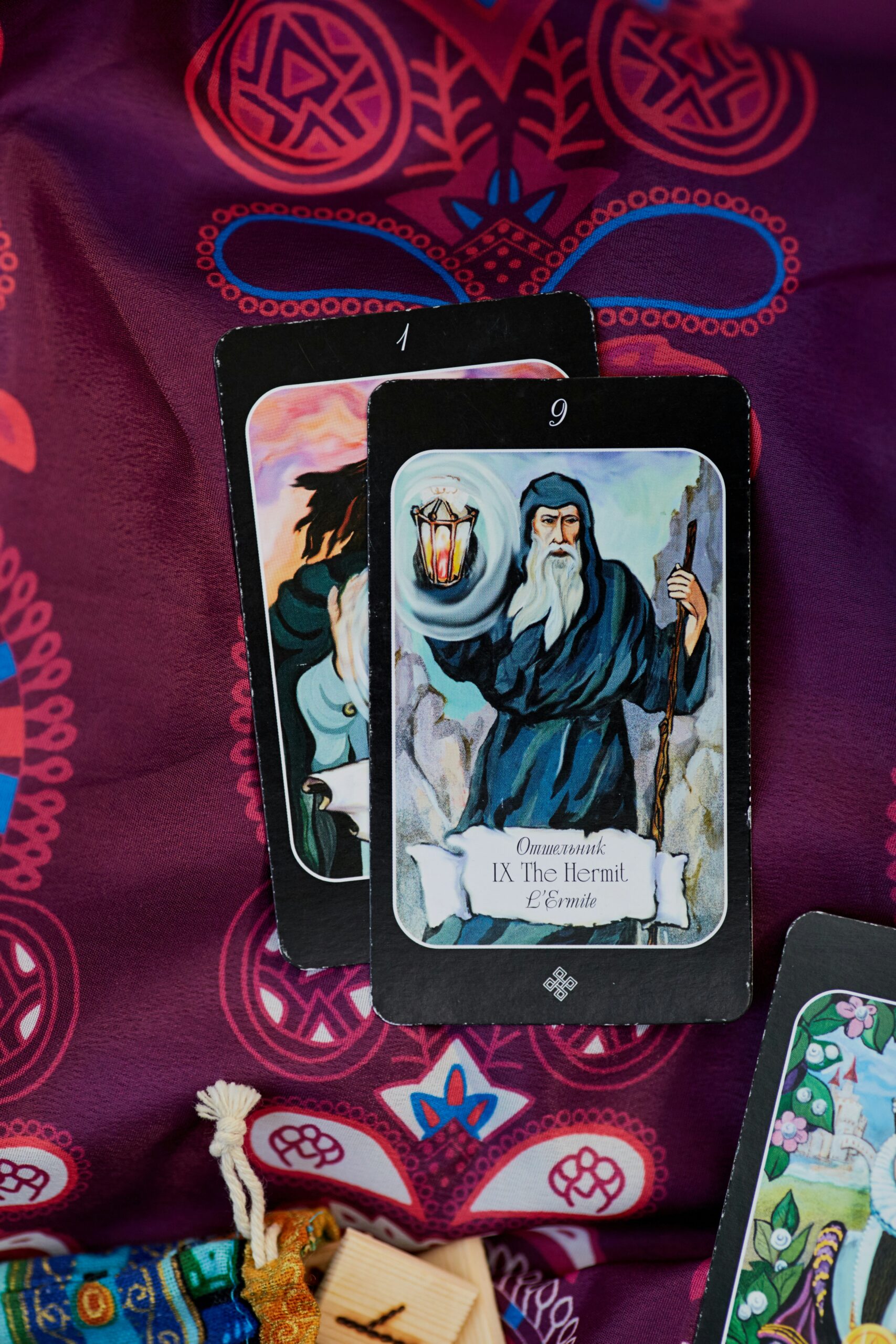
Photo by <a href="https://unsplash.com/@tengyart" rel="nofollow">Олег Мороз</a> on <a href="https://unsplash.com/?utm_source=hostinger&utm_medium=referral" rel="nofollow">Unsplash</a>
Introduction to Vedic Astrology
Vedic astrology, a profound and ancient system of astrological practice, has its roots in the Vedas, the sacred texts of Hinduism. Originating in India over five thousand years ago, Vedic astrology, or Jyotisha, remains a vital element of Indian culture, serving not only as a method for forecasting personal destinies but also as a spiritual guide. Its principles underscore the belief that the universe’s cosmic energies influence human lives, prompting individuals to contemplate their paths through a celestial lens.
One of the fundamental distinctions between Vedic and Western astrology is the method of calculation used to create astrological charts. Vedic astrology is based on the sidereal zodiac, which is a fixed system that accounts for the precession of the equinoxes. Conversely, Western astrology utilizes the tropical zodiac, which is more aligned with the seasons. This difference results in a variation in planetary positions and horoscopes, leading to differing interpretations of astrological impacts on individuals’ lives.
A notable aspect of Vedic astrology is its emphasis on the lunar system, particularly the nakshatras, or lunar mansions. These twenty-seven subdivisions of the moon’s path play a crucial role in charting a person’s horoscope. Unlike Western systems that focus predominantly on the position of the Sun, Vedic astrology regards the moon’s phase and its placement within these nakshatras at the time of birth as central to understanding character and destiny. Moreover, Vedic astrologers pay significant attention to the planetary positions, considering how they interact with the moon’s placement and the individual’s ascendant sign.
Through the lens of Vedic astrology, individuals can gain insights into their personalities, relationships, and life events. It operates as both a predictive tool and a deeper exploration of one’s spiritual journey, encapsulating the rich tapestry of cosmic relationships that shape our lives.
What is Jagannatha Hora?
Jagannatha Hora is a sophisticated software tool designed specifically for those engaged in Vedic astrology. It is widely recognized among practitioners for its comprehensive features and user-friendly interface, which together enhance the experience of astrological analysis. The software is particularly valuable for astrologers aiming to create detailed charts, make accurate predictions, and provide personalized consultations based on classical Vedic principles.
One of the defining aspects of Jagannatha Hora is its ability to generate an array of charts, including natal, transit, varshaphal, and divisional charts. These charts serve as the foundational components for astrological analysis, offering insights into an individual’s life events and karmic lessons based on planetary positions at the time of birth. The software integrates complex calculations, ensuring that the charts produced align precisely with Vedic astrological standards.
The user interface of Jagannatha Hora is designed to be intuitive, enabling both novice and experienced astrologers to navigate the platform effectively. It provides various customization options, allowing users to adjust parameters according to their needs, thus facilitating a more tailored analytical process. Moreover, Jagannatha Hora offers features such as a transit calculator, planetary determinants, and dasa systems, which further assist astrologers in their predictive endeavors.
Additionally, the software includes educational resources and guides that support users in understanding the complexities of Vedic astrology. This is particularly beneficial for those new to the field, as it provides foundational knowledge as well as advanced techniques. Overall, Jagannatha Hora stands out as an essential tool that bridges traditional Vedic astrological wisdom with modern technology, empowering astrologers to deliver profound insights and forecasts to their clients.
The Basics of Astrological Charts
Astrological charts, a fundamental element of Vedic astrology, serve as a visual representation of planetary positions at the time of an individual’s birth. These charts are organized into twelve distinct houses, each corresponding to various aspects of life, such as personality, relationships, career, and more. Each house signifies a different area of human experience, allowing astrologers to interpret how celestial movements influence these areas.
Central to the astrological chart are the nine planets, as defined in Vedic astrology, including the Sun, Moon, Mars, Mercury, Jupiter, Venus, Saturn, Rahu, and Ketu. Each planet embodies specific energies and influences, playing a crucial role in shaping an individual’s temperament and life experiences. For instance, the Sun relates to core identity, whereas the Moon reflects emotional responses. The integration of these planets within the twelve houses forms a comprehensive map that makes Vedic astrology a powerful predictive tool.
Additionally, the twelve zodiac signs, each associated with unique characteristics and attributes, further enrich the interpretation of the astrological chart. When planets occupy specific houses in particular signs, they produce a combination of influences that can reveal insights about personal circumstances, challenges, and opportunities. This layered complexity is where tools like Jagannatha Hora come into play.
Jagannatha Hora, a renowned software application for Vedic astrology, aids practitioners in visualizing and interpreting these intricate astrological charts. It provides functionalities such as chart calculations and integration of various astrological principles, enabling both practitioners and enthusiasts to explore the depths of astrology with enhanced clarity. Through this visualization, users can delve into the intricacies of their birth charts, ultimately fostering a better understanding of their unique astrological makeup and its implications.
Understanding Nakshatras and Their Importance
Nakshatras, integral components of Vedic astrology, refer to the 27 lunar mansions that play a crucial role in the understanding of astrological influences. Each Nakshatra spans approximately 13 degrees and 20 minutes of the zodiac, encompassing distinct characteristics, energy types, and symbolic representations. Derived from ancient texts, these heavenly divisions are critical for astrological predictions, chart interpretation, and personalized insights into human behavior.
Each Nakshatra is associated with specific qualities, ruling deities, and planetary influences. For instance, Ashwini, the first Nakshatra, is characterized by swiftness, healing, and vitality, while Rohini is linked to fertility, beauty, and abundance. Such attributes profoundly impact an individual’s personality traits and life events, providing a groundwork for self-understanding and growth. The interplay of Nakshatras with planets adds intricate layers to an astrological chart, allowing for deeper analysis using sophisticated tools like Jagannatha Hora.
The significance of Nakshatras extends beyond mere personality traits; they are also pivotal in predictive astrology. For example, the placement of the Moon at the time of birth often determines an individual’s birth Nakshatra, which can influence emotional tendencies, career paths, and relationship dynamics. Additionally, Nakshatras are instrumental in Muhurta (electing auspicious times), as particular Nakshatras may be more favorable than others for initiating important ventures. This dual influence illustrates the Nakshatras as guiding forces in the practical aspects of life.
In exploring Nakshatras through the lens of Jagannatha Hora, users can gain unparalleled insights into their astrological make-up. The software offers intricate details regarding each Nakshatra, helping individuals comprehend their inherent strengths, challenges, and optimal life choices aligned with cosmic energies. Thus, understanding Nakshatras not only enhances one’s astrological knowledge but serves as a vital tool for navigating life’s journey effectively.
Planets and Their Influence in Vedic Astrology
In Vedic astrology, the significance of the nine planets, collectively known as Navagraha, is paramount in understanding how celestial positions shape individual destinies. These planets are Surya (Sun), Chandra (Moon), Mangala (Mars), Budha (Mercury), Brihaspati (Jupiter), Shukra (Venus), Shani (Saturn), Rahu (North Node), and Ketu (South Node). Each planet possesses unique qualities and influences, which vary based on their position within a person’s birth chart.
Surya, or the Sun, symbolizes life and vitality. It represents one’s self-awareness and authority, influencing one’s ego and willpower. Chandra, the Moon, governs emotions and intuition, reflecting how individuals nurture themselves and their relationships. Mangala, or Mars, embodies energy, courage, and assertiveness, significantly impacting ambition and drive.
Budha is associated with intellect, communication, and adaptability, shaping one’s analytical skills and learning abilities. Brihaspati, the planet of wisdom and expansion, influences knowledge, education, and spiritual growth. Shukra represents love, beauty, and material comfort, playing a crucial role in relationships and artistic pursuits.
Shani, or Saturn, teaches lessons of discipline, hard work, and patience, often through challenges and setbacks. Rahu and Ketu, the shadow planets, impact desires and spiritual lessons, affecting one’s karmic journey. Understanding the intricate roles of these planets and their transits is essential for effective Vedic astrology analysis.
Jagannatha Hora, a renowned Vedic astrology software, aids practitioners in interpreting the complex interactions of these planetary positions and their implications for individual lives. By analyzing natal charts and planetary transits, Jagannatha Hora provides insights into how the Navagraha collectively influences personal growth and destiny. Thus, it serves as a powerful tool for astrologers seeking to decode the mysteries of Vedic astrology.
Key Techniques in Vedic Astrology
Vedic astrology, an ancient Indian astrological system, employs various predictive techniques that allow practitioners to interpret celestial influences on human life. Among these techniques, Dashas, Varshaphal, and Prashna Shastra are significant. Each method offers a unique perspective on timing and circumstances affecting individuals, and when combined with tools like Jagannatha Hora, practitioners can enhance their accuracy.
Dashas, primarily the Vimshottari Dasha system, serve as a timeline indicating the planetary periods in an individual’s life. Each planet governs a specific duration, reflecting its influences on personal experiences. The transitions between these periods reveal important life events and phases of growth. Jagannatha Hora simplifies the calculation of Dashas by providing intuitive interfaces that present clear planetary alignments and their transitions, allowing for swift analysis and interpretation.
Varshaphal, or annual astrology, focuses on the yearly horoscope created at the moment of the Sun’s return to its natal position. It acts as a roadmap for the year ahead, highlighting opportunities, challenges, and potential outcomes. Utilizing Jagannatha Hora facilitates the construction of these charts and enables astrologers to predict specific events with greater precision, considering planetary strengths and weaknesses effectively.
Prashna Shastra, or horary astrology, provides answers to specific questions based on the time the question is posed. This technique is highly dynamic and can yield instantaneous insights into urgent matters. Jagannatha Hora aids in this technique by allowing users to calculate the ascendant and the positions of the planets at the moment the inquiry is made, thereby supporting practitioners in delivering timely and pertinent advice.
Overall, the integration of Jagannatha Hora within these techniques of Vedic astrology not only streamlines complex calculations but also enhances the overall interpretative depth of the charts, paving the way for insightful predictions and guidance.
Using Jagannatha Hora for Personalized Insights
Jagannatha Hora is a powerful tool for anyone seeking personalized insights through Vedic astrology. This software facilitates deep astrological analysis by allowing users to create detailed charts based on their birth details. To gain meaningful insights, one must first input the correct data, including date, time, and place of birth, into the software. This step is crucial, as the accuracy of the astrological readings is highly dependent on the precision of the entered information.
Once the birth chart is generated, users can navigate through various features of Jagannatha Hora to explore different aspects of their lives. One of the key components of this software is the ability to view the natal chart, which reveals the positions of celestial bodies at the time of one’s birth. By analyzing this chart, users can uncover valuable information regarding their personalities, strengths, weaknesses, and potential life events influenced by planetary transitions.
Furthermore, Jagannatha Hora provides predictive tools to help users understand upcoming astrological influences. By examining the Dasha system, which outlines the planetary periods affecting a person’s life, individuals can anticipate the timing of specific events or trends. The software also enables users to assess their house placements and transits, shedding light on the various dimensions of their current life circumstances.
For a more focused reading, users may choose to analyze specific areas of life, such as career, relationships, or health. The software’s comprehensive analysis features help in synthesizing information effectively, allowing for tailored advice and insights. Exploring these facets can lead to greater self-awareness and informed decision-making.
In conclusion, using Jagannatha Hora for personal astrological consultations empowers individuals to gain unique insights into their lives, shaping a clearer understanding of their destiny and enhancing their overall well-being.
Case Studies: Real Life Applications
Vedic astrology, particularly through the lens of Jagannatha Hora, has provided profound insights into various life situations for many individuals. One notable case involves a business entrepreneur who sought guidance on expanding his company. Utilizing Jagannatha Hora software, a detailed analysis of his birth chart revealed significant planetary influences on career prospects and financial growth. The analysis showed favorable periods for investment and strategic decisions, allowing the entrepreneur to align his business moves with cosmic timings, ultimately leading to a successful expansion.
Another compelling case featured a couple experiencing challenges in their marriage. They consulted a Vedic astrologer who employed Jagannatha Hora to examine their individual birth charts and potential compatibility factors. The software identified specific planetary alignments that affected their relationship, providing clarity on their challenges. Insights gained allowed the couple to understand each other better and work through their issues, leading to improved communication and a stronger bond.
Furthermore, a case study on health issues exemplified the application of Jagannatha Hora in identifying potential health risks through astrological interpretations. A client approached an astrologer with concerns about hereditary health issues. The astrologer used Jagannatha Hora to evaluate the birth chart and discovered alarming configurations indicating vulnerabilities. This revelation acted as a catalyst for the individual to seek proactive health measures, highlighting the practical importance of astrological insights in safeguarding one’s well-being.
These case studies illustrate the adaptable nature of Vedic astrology and the intuitive power of Jagannatha Hora in guiding individuals through diverse aspects of life. Each scenario demonstrates not only the depth of analysis possible, but also the tangible benefits accrued from informed decision-making based on astrological foundations. Thus, Vedic astrology offers a valuable framework for understanding personal dynamics and navigating life’s complexities.
Conclusion: The Journey of Exploration
The exploration of Vedic astrology, particularly through the comprehensive lens of Jagannatha Hora, is a profound journey that invites individuals to delve into the ancient wisdom of the stars and their influence on human experiences. As we have discussed, this unique astrological system offers deep insights into one’s personality, life events, and future possibilities, providing a holistic approach to self-understanding and personal growth. The ability of Jagannatha Hora to calculate precise planetary positions allows practitioners to generate accurate horoscopes that can guide decision-making processes and foster a greater awareness of life’s circumstances.
Throughout this journey, we have uncovered fundamental principles such as the significance of planetary placements, the impact of nakshatras (lunar mansions), and the importance of the birth chart in understanding individual life paths. As a tool, Jagannatha Hora stands out due to its user-friendly interface and powerful analytical capabilities, making it accessible not only to seasoned astrologers but also to those who are new to the field. The practice of Vedic astrology encourages reflective thinking and fosters a deeper connection to oneself and the universe, emphasizing both the ancient traditions and modern interpretations that coexist today.
Furthermore, the integration of Vedic astrology into daily life can enhance personal awareness, aiding individuals in navigating the complexities of relationships, career choices, and health matters. Readers are encouraged to continue their investigation into this fascinating field, exploring additional texts and resources to strengthen their understanding and application of Vedic principles. By engaging with the teachings of Jagannatha Hora, one can better appreciate the nuances of astrological influences and cultivate a broader perspective on life. In conclusion, the ongoing journey in Vedic astrology is not merely about prediction but is an enlightening adventure of self-discovery and cosmic connection.






